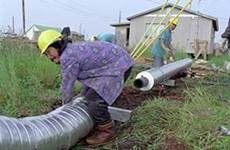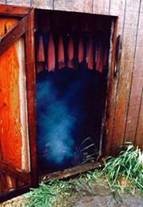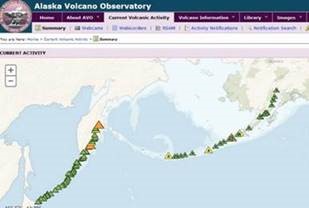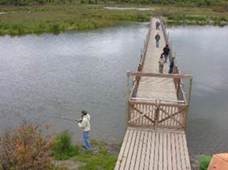Murkowski Interior Subcommittee Leadership Brings Results for Alaska Tribal Health, Lands and Parks in Spending Bill
Ranking Republican Shares Final Results of FY2015 Interior Budget Negotiations, Continued Success for Alaska Native Health Care Providers
As the top Republican on the Senate Interior Appropriations Subcommittee, Senator Lisa Murkowski today shared the results of her collaborations with Congressional Appropriations Committee members in crafting a 2015 Interior Department budget that addresses a number of core Alaska needs. With the Department of the Interior managing a majority of Alaska’s lands, forests and waters – in addition to providing oversight of many services and programs for Alaska Natives and tribes – this bill has an oversized impact to Alaskans statewide.
Providing financial certainty to Alaska’s tribal health care providers, Murkowski successfully added more money than requested by the President for contract support costs (CSCs) in the 2015 budget – a welcome result after years of the government shortchanging their efforts. Earlier this year, Murkowski led the effort with the Alaska delegation to fully fund CSCs to assure that tribal health centers could provide care for Alaska Natives, improving the health and well-being of Alaska’s First People and creating jobs for medical professionals and support staff.
“The federal government has a responsibility to Alaska and a solemn obligation to our First People to fulfill its commitments to us, our lands, our way of life, our safety, and our well-being,” said Murkowski. “I thank Chairman Jack Reed and the House Interior Leadership for working with me to responsibly fund the Department of Interior’s large footprint in Alaska.”
Murkowski was able to leverage her position as Ranking Republican on the Committee to prioritize Alaska Native health care needs, public land usage, rural infrastructure, justice and public safety.
Alaska Tribal Priorities and Rural Communities
Delivering Care and Certainty for Native Health: Senator Murkowski secured an additional $79 million above last year’s level to address Contract Support Cost (CSC) shortfalls within the Bureau of Indian Affairs and the Indian Health Service. Alaska tribes, who operate tribal self-governance agreements with the federal government to deliver health care services of the United States to Alaska Natives will be provided $200 million for the operational costs of those agreements. Adequate support for tribal self-governance compacts and contracts allows tribes to improve the delivery of health and social services.
Background: For years, the administration shortchanged tribes nationwide by funding less than full contract support costs for the BIA and IHS. It was Murkowski’s work in conjunction with her subcommittee colleagues, which culminated earlier this year to halt this practice.

(Dentists chairs ready for Alaskans at the Benteh Nuutah Valley Native Primary Care Center in Wasilla.)
Staffing of health facilities: The bill fully funds the request of $71 million for staffing of new facilities across the nation. In addition, full funding is provided to maintain staffing packages for facilities opened in Alaska during the past year and operated by the Southcentral Foundation, Norton Sound Health Corporation, Tanana Chiefs, the Barrow Hospital, Copper River, and Kenaitze. The staffing packages will bring hundreds of jobs to communities.
Promoting and Empowering Tribal Justice: Today’s bill not only includes over $352 million to support public safety and justice programs across the country, but requires the Department of the Interior to review and provide a report on the funding needs of tribal courts in states like Alaska that do not currently receive dedicated tribal court funding.
Safe Drinking Water and Wastewater Funding: In contrast to the steep cuts proposed by the administration, Senator Murkowski helped maintain $17 million in support of Alaska’s efforts through the EPA’s State Water Revolving Funds program.
Rural Water Infrastructure: The bill includes $10 million for EPA's Alaska Native Villages program which provides grants to implement critical wastewater and drinking water projects for Alaska Natives.

(Installing water pipes in Selawik.)
Supporting Native Children’s Unique Needs: Already the co-sponsor of a bipartisan bill to create a Commission on Native Children, Senator Murkowski sponsored language in the 2015 Interior funding bill to promote interagency collaboration to streamline efforts to improve “health care, social service, child welfare and juvenile justice programs.” Murkowski believes these preliminary efforts will create a better foundation for the future commission to fully serve Native youth nationwide.
Alaska Subsistence: A year after Senator Murkowski pushed back against the administration’s attempt to cut the Fish and Wildlife Service’s budget for the Alaska Subsistence Program, its funding level this year remained constant at $12.4 million. The program promotes and regulates subsistence use on federal lands by overseeing harvest assessments and resource monitoring, conducting population assessments, and participating in Native outreach and education. In addition, the Forest Service’s proposal to eliminate $2.5 million for the subsistence program was rejected and these funds were restored in the bill.

(A salmon smokehouse in Chignik.)
Fighting Federal Overreach
Prohibiting New Wild Lands: Senator Murkowski was instrumental in making sure that the administration was not able to implement a controversial Department of Interior Secretarial Order that would designate new special conservation protection areas.
Avoiding EPA Interference With Hunting and Fishing: The bill contains a provision to prohibit the use of Environmental Protection Agency funds from regulating lead content of ammunition, ammunition components, and fishing tackle.
Blocking Coastal Marine Special Planning (CMSP) in Alaska: Alaskans are against CMSP in our waters – with officials on record calling it a “new layer of bureaucracy” on top of what Alaska policies already cover. Earlier this Congressional session, Senator Murkowski was told by then-acting Commerce Secretary Blank earlier this Congressional session that “states that do not want to participate [in the program] will not have to.” To make certain that this is the case, Murkowski supported language in the budget prohibiting Interior Department funds from being used for CMSP in and around Alaska.
Lands and Forests
Resources and Accountability on Contaminated ANCSA lands: In 1998, the Department of the Interior submitted a report to Congress acknowledging that it conveyed approximately 650 contaminated sites through the Alaska Native Claims Settlement Act (ANCSA). No significant efforts have been made by the Department to clean up these sites since this report was issued. The bill requires the Department to provide an updated report which includes not only an inventory of these sites but a detailed plan for how the Department intends to remediate them.
Land Conveyance Funding Restored: The federal government’s conveyance program of land owed to Alaska and Alaska Natives is mandated under the 43-year-old Alaska Native Settlement Claims Act (ANCSA). In order to speed up this process, Senator Murkowski passed the Alaska Lands Transfer Acceleration Act in 2004. However, the President’s budget slashed the funding for Alaska land conveyance work. Murkowski was able to restore the funding to $22 million to further provide Alaskans and Native Corporations final title to lands selected under the Alaska Statehood Act and ANCSA.
Fighting for True Timber Balance: Over the last ten years, the United States Forest Service’s Region 10 has limited the allowable timber sales to less than ten percent of the actual land management plan – damaging the timber industry and shutting down numerous mills. Today’s Interior bill contains a provision forcing the government to alter its course to restore proper balance by offering timber sales plans within two years that will offer economic opportunity and confidence.
Alaska Red Cedar: Murkowski included language in the bill requiring that timber sales in Alaska be economic and for the U.S. Forest Service to use an appraisal system best suited to the unique needs of Alaska. The provision reads, in part:
No timber sale in Alaska’s Region 10 shall be advertised if the indicated rate is deficit (defined as the value of the timber is not sufficient to cover all logging and stumpage costs and provide a normal profit and risk allowance under the Forest Service’s appraisal process) when appraised using a residual value appraisal. The western red cedar timber from those sales which is surplus to the needs of the domestic processors in Alaska, shall be made available to domestic processors in the contiguous 48 United States at prevailing domestic prices…
Supporting Alaska Public Safety
Strengthening Alaska Volcano Observatory’s Work: With activity from the “Ring of Fire” a regular occurrence, Alaskans rely on the Alaska Volcano Observatory’s ability to detect threats to life, health and the state’s economy. Senator Murkowski included language in today’s bill that will increase the United States Geographical Survey Volcano Hazards program by an additional $2 million to assist the Survey in repairing and upgrading current monitoring systems. Several of the current seismic monitors are inoperable and maintenance is needed to continue rapid detection of these volcano threats.

(The Alaska Volcano Observatory’s important work available online.)
Alaska Mapping Gets a Boost: Accurate, up-to-date topographic maps are necessary for aviation safety, energy development and resource assessments. Much of the state’s topographic maps are more than a half-century old. The bill includes $3.050 million for the U.S. Geological Survey’s Alaska Mapping Initiative, which will be used to acquire data needed to provide accurate, current and publicly accessible statewide topographic maps.
Improving Alaska’s National Parks
Katmai National Park, Brooks Lodge: With $4.4 million being provided to upgrade the current bridge to Brooks Falls to provide better public access and avoid human-bear interactions, Senator Murkowski included language directing the National Park Service to discontinue considering the use of funds to relocate the Brooks Lodge in Katmai National Park based on an outdated land use plan. This historic lodge is enjoyed by many Alaskans and tourists from around the world for the unique opportunity of observing bears up close in the wild.

(Current floating bridge at Brooks Camp.)








